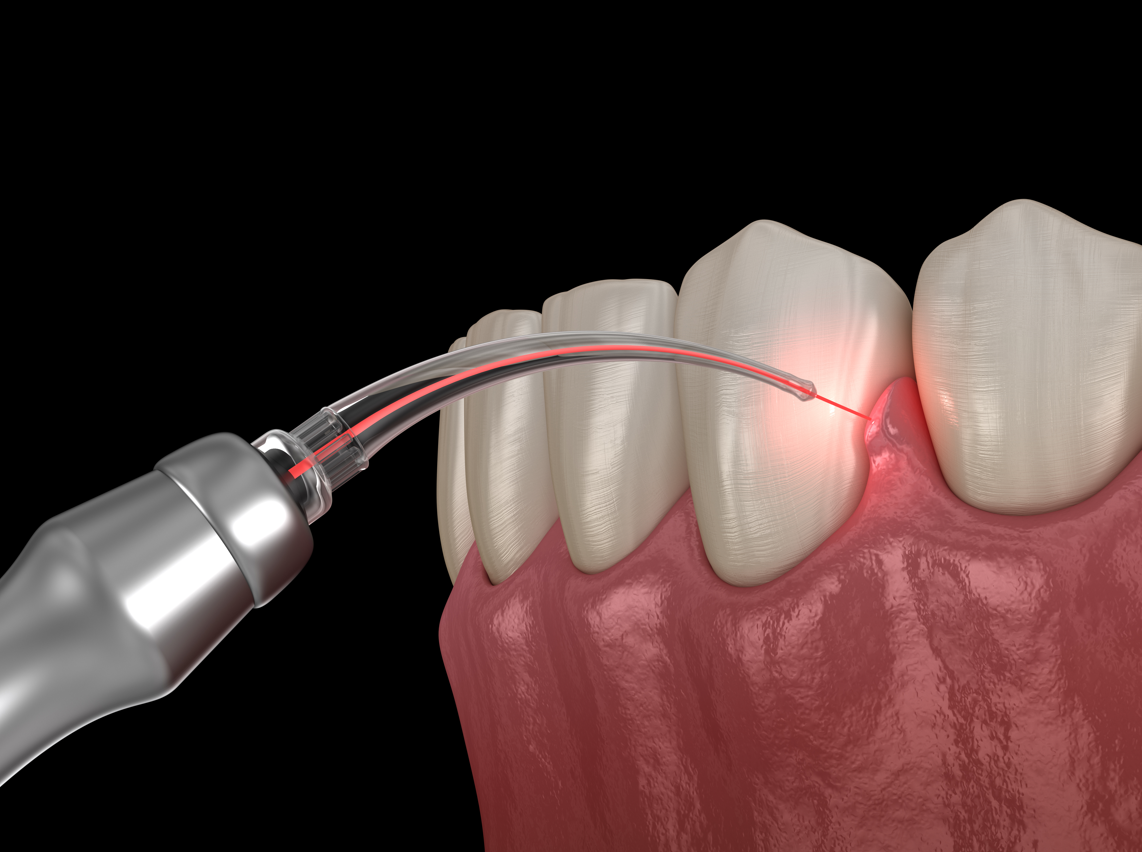What Causes Gum Disease?
Bacteria causes gum disease. Your mouth is full of bacteria. As you consume foods and drinks a sticky, colorless plaque forms on your teeth from a combination of bacteria, mucus and food. Foods high in sugar or starches are much worse as they combine with the bacteria and saliva to create a more acidic substance. Your saliva will help remove plaque from your teeth, but it won’t remove it all. If plaque builds up it hardens and forms tartar. The longer plaque and tartar remain on your teeth, the more harmful they become.
The Road To Gingivitis
When bacteria starts to cause inflammation of the gums this is called gingivitis. The gums become red, swollen and can bleed easily. Gingivitis is a mild form of gum disease that can usually be reversed with daily brushing and flossing. Regular cleaning by a dentist or dental hygienist are also encouraged. This form of gum disease does not yet include any loss of bone and tissue that hold teeth in place.
The Road To Periodontal Disease (Gum Disease)
When gingivitis is not treated, it can advance to periodontitis, (which means “inflammation around the tooth”). Gums begin to pull away from the teeth and form spaces called pockets. These pockets can easily become infected. As a result, the body’s natural defense system will begin to fight the bacteria while the plaque continues to spread and grow below the gum line. Bacterial toxins and the body’s natural response to infection start to break down the bone and connective tissue that hold teeth in place. If not treated, the bones, gums, and tissue that support the teeth are destroyed. The teeth may eventually become loose and have to be removed.
Brushing and flossing helps get rid of plaque, however, only a professional cleaning by a dentist or dental hygienist can remove tartar. It is highly recommended to have regular cleanings for this cause.
High Risk Factors for Gum Disease
- Smoking: Smoking is one of the most significant risk factors associated with the development of gum disease. Additionally, smoking can lower the chances for successful treatment.
- Hormonal changes in women: These changes can make gums more sensitive and make it easier for gingivitis to develop.
- Diabetes: People with diabetes are at higher risk for developing infections, including gum disease.
- Other illnesses: Diseases like cancer or AIDS and their treatments can also negatively affect the health of gums.
- Medications: Medications that reduce the flow of saliva make your mouth vulnerable to infection. Since saliva has a protective effect on the mouth, without enough saliva, the mouth is vulnerable to diseases such as gum disease. Some medications can cause abnormal overgrowth of the gum tissue which can make it difficult to keep teeth and gums clean.
- Genetic susceptibility: Some people are more prone to severe gum disease than others.
Symptoms
- Bad breath that won’t go away
- Red or swollen gums
- Tender or bleeding gums
- Painful chewing
- Loose teeth
- Sensitive teeth
- Receding gums or longer appearing teeth
Periodontal Treatment
Treatments of gum disease include deep cleaning (Scaling and Root Planing), medications or surgical treatment. Some surgical treatments involve flap surgery or bone and tissue grafting. If gum disease has become a severe issue see Dr. Bruggeman in Thornton, CO for treatment. Call us today to set up an appointment.

